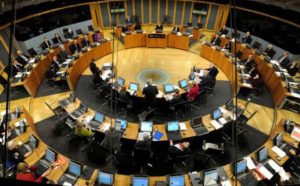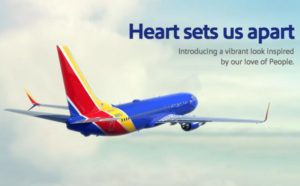This week we received a broadband hub upgrade, twice as fast as the previous unit, delivering 200mb speed. Impressive as that may sound, it crystallised my thinking on the speed in which we live our day-to-day lives. Outside, the traffic starts earlier and earlier, the speed at which people drive down the road certainly increases in the peak periods, as people hurry to get to work and mothers (no doubt balancing the multiple roles of mother, employee, partner, etc.) rush to get the kids to school or drop-off point before getting into work on time and then to get to the shop, pick the kids up, and maybe go onto another job later in the afternoon.
I see this same rushing to complete, multiple meeting days, pressure to make instant decisions and quick analysis of results in the working environment on a regular basis. The other week I saw a post from a senior police officer on Twitter “Reminded of the need to create time to stop and think and allow others that time too. It leads to better decision making”. So I am interested to explore if the deadlines and expectations that we seem to be treating as givens or even as rules are both beneficial and supportive to a) good decision making and b) wellbeing. The answer, I fear, may well be not!
With England exiting the Rugby World Cup, the autopsy in the press already underway and Brendan Rodgers being sacked for Liverpool’s poor performance, there is more evidence of growing impatience, be it from fans, board members, or the Press; our lack of patience and our instant expectations are everywhere.
So why and how should we create that much-needed space to reflect, to consider and to think. Well the increase in stress-related illness, for one, is something that should concern all employers and leaders alike. The 2014 HSE report (based upon information gathered by the Office for National Statistics) reported the total number of working days lost due to work-related stress, depression or anxiety was 11.3 million in 2013/14, an average of 23 days per case of stress, depression or anxiety. At the heart of any organisation is their people, without whom, there is no business. It’s an old cliché that ‘a business’s biggest assets are its people’, yet the statistics show no significant reduction of stress-related absence. And here is the real issue, the statistics only report absence, they do not recognise the impaired performance of a stressed, under-pressure, moving at a million-miles-an-hour individual, who turns up for work and whose wellbeing and ability to perform is significantly reduced. I wonder, honestly, how many times we have seen that in ourselves and in those that we lead?
How do we create this space? The heart of the matter is that we first have to accept our responsibility; that we are part of the problem. To act courageously, making judgement calls that reflect, not just the needs of a business, but also the needs of its people. If we are to lead sustainable businesses, we have to recognise that sustainability extends to the people we employ. True leadership development is about developing ourselves, inward reflection and the Courage to make changes to ourselves before influencing others. Walk the walk not just talk the talk. Develop Compassionate leadership and be Creative in the way we develop working practices, don’t be rushed by external agendas into making and expecting others to find optimum solutions instantly, decide what your intention is, as this focuses your attention.
The Japanese think it strange we paint our old wooden houses when it takes so long to find the wabi in them. They prefer the bonsai tree after the valiant blossoming is over, the leaves fallen. When bareness reveals a merit born in the vegetable struggling.”
Author: Jack Gilbert




